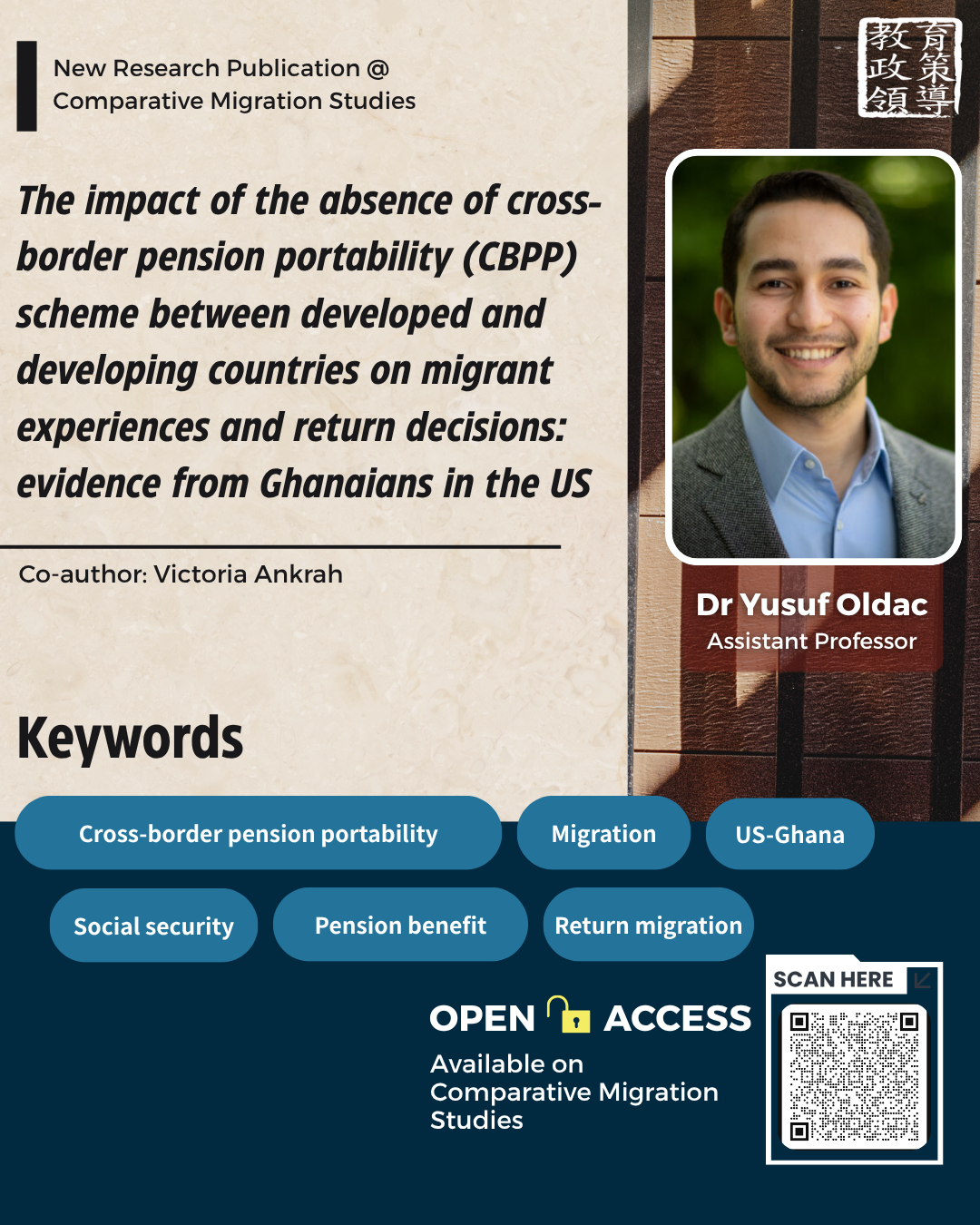
We would like to extend our congratulations to Dr Yusuf Oldac, Assistant Professor of the Department of Education Policy and Leadership, of his latest research publication titled "The impact of the absence of cross-border pension portability (CBPP) scheme between developed and developing countries on migrant experiences and return decisions: evidence from Ghanaians in the US", co-authored with Victoria Ankrah, is now available on Comparative Migration Studies.
Abstract
This study explores the critical implications of the absence of Cross-Border Pension Portability (CBPP) schemes for Ghanaian migrants residing in the Bronx, New York, illuminating the complexity of their return migration intentions in the absence of CBPP. Drawing on neoclassical economic labour migration theory and the social protection theory, we built a foundation on how past integrational challenges increase the chances of return migration and the significance of CBPP as asafety net for migrant's accumulated social security. We conducted in-depth interviews with 28 Ghanaian migrants to examine how these past integrational challenges, which have already increased their chances of return, are compounded by the absence of a CBPP agreement, which causes a fear of losing their pension benefit on return. The study examines their experiences as they make such complex decisions towards their retirement. Our findings reveal that many migrants prolong their stay in the U.S. to obtain citizenship, which is essential for accessing pension benefits abroad without restrictions. This extended stay disrupts their retirement plans and compels them to extend their work life further to supplement their meagre pension benefit, which is a repercussion of their past low-paying jobs. Migrants face several challenges when deciding to leave the U.S. without acquiring citizenship. Those who choose to return to their home countries must visit the U.S. every six months to maintain their eligibility for benefits. This requirement can lead to significant costs, as they need to cover travel expenses and accommodations. As a result, a large portion of their benefits may be redirected to settle these conditions for their pension eligibility. This research contributes to the literature by highlighting how implementing CBPP could alleviate these burdens, enhance migrant well-being, and facilitate smoother transitions back to migrants’ home countries. Ultimately, we argue that CBPP is essential for addressing humanitarian concerns and the economic implications for migrants and the host country.
Click here to read the full article.